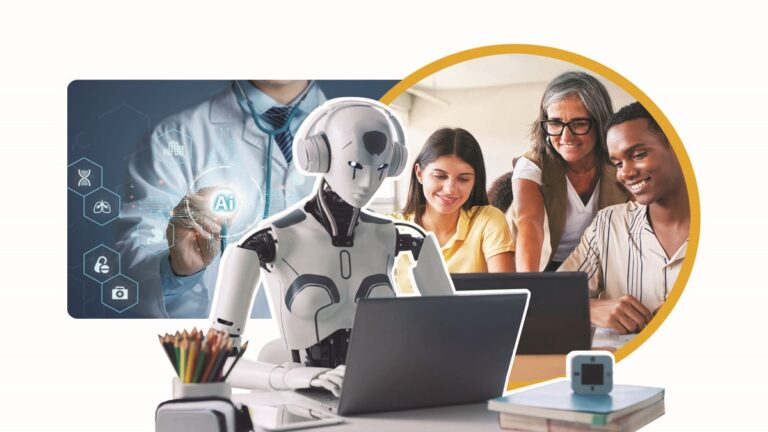AI Innovations: Transforming Healthcare, Education, and Entertainment
The Rise of AI in Healthcare
Microsoft has announced a groundbreaking medical AI tool, claiming it outperforms experienced doctors by a staggering four times. This innovative system tackles intricate diagnostic challenges using a structured reasoning model that evaluates symptoms, test results, and case histories to reach accurate diagnoses. Early research indicates that this AI can exceed doctors’ performance on reference tests by up to 400%. Although it is not intended to replace healthcare professionals, it represents a significant advancement in clinical decision-making aids, particularly beneficial in resource-constrained settings striving for efficient diagnostic solutions.
Empowering Young Minds with Google’s AI Tools
In an effort to foster learning and creativity among students, Google has launched a suite of AI tools accessible to users under 18, as part of a broader update to Google Classroom. This initiative includes over 30 Gemini AI resources, such as NotebookLM—an AI assistant designed to summarize texts, generate questions, and create study guides. Additionally, educators utilizing Google Workspace accounts will have access to a dedicated tab for streamlined lesson planning. Google emphasizes stringent safety measures to ensure that young users can engage responsibly with these advanced tools, hinting at a future classroom co-designed with AI.
AI-Generated Music: The Case of Sundown Velvet
The Spotify landscape has taken an intriguing turn with the emergence of Sundown Velvet, a neo-psychedelic folk band believed to be entirely AI-generated. Despite their rise to fame with over 900,000 streams, the group remains mysterious, with no verified identities or official promotions. Experts speculate that their music is crafted using AI-generated voices and instruments, showcasing the potential of generative music models. Interestingly, Sundown Velvet has humorously dismissed rumors about their AI origins, asserting that many journalists suggesting such are themselves AI creations.
UNESCO’s Artistic Collaboration Through AI
The intersection of culture and technology is being explored in South Korea, where UNESCO and the Jeju province have initiated an art class project that invites international youth to reinterpret traditional Jeju heritage through AI. By blending digital tools with local artistry, this initiative aims to deepen intercultural understanding while fostering creativity. Participants will engage in workshops, virtual exchanges, and an international art showcase, emphasizing AI not merely as a disruptor but as a bridge for cultural exploration and expression.
Revolutionizing Fashion with AI: Introducing DOPPL
DOPPL, Google’s experimental application, is set to change the way we shop for clothes. By allowing users to upload photos, the app generates a personalized virtual model that showcases how different outfits will fit and move. This innovative approach aims to enhance online shopping experiences while potentially reducing return rates. However, the application raises important questions regarding data privacy and body image as AI avatars become increasingly lifelike, sparking debates about their impact on consumer behavior.
Meet Alphabot 2: The Socially Engaging Humanoid Robot
Alphabot 2, developed by AI2 Robotics, is making waves as a humanoid robot that combines functionality with interaction. Equipped with advanced natural language processing and motion recognition capabilities, this robot can respond to prompts, such as playing dice games, with engaging social interactions. Demonstrated recently in Macau, Alphabot 2 showcases a future where machines serve not only as tools but also as companions capable of understanding and participating in social environments—potentially transforming how we view robots in sectors such as healthcare and education.
Conclusion: The Future of AI Across Industries
As artificial intelligence continues to evolve, its applications in healthcare, education, entertainment, and interpersonal interactions are becoming increasingly sophisticated. From Microsoft’s medical advancements to Google’s educational tools and AI-generated art and music, these innovations not only promise to enhance efficiency and creativity but also highlight the need for cautious integration. Embracing AI’s potential while addressing ethical concerns will be crucial in shaping a future that benefits society as a whole.

